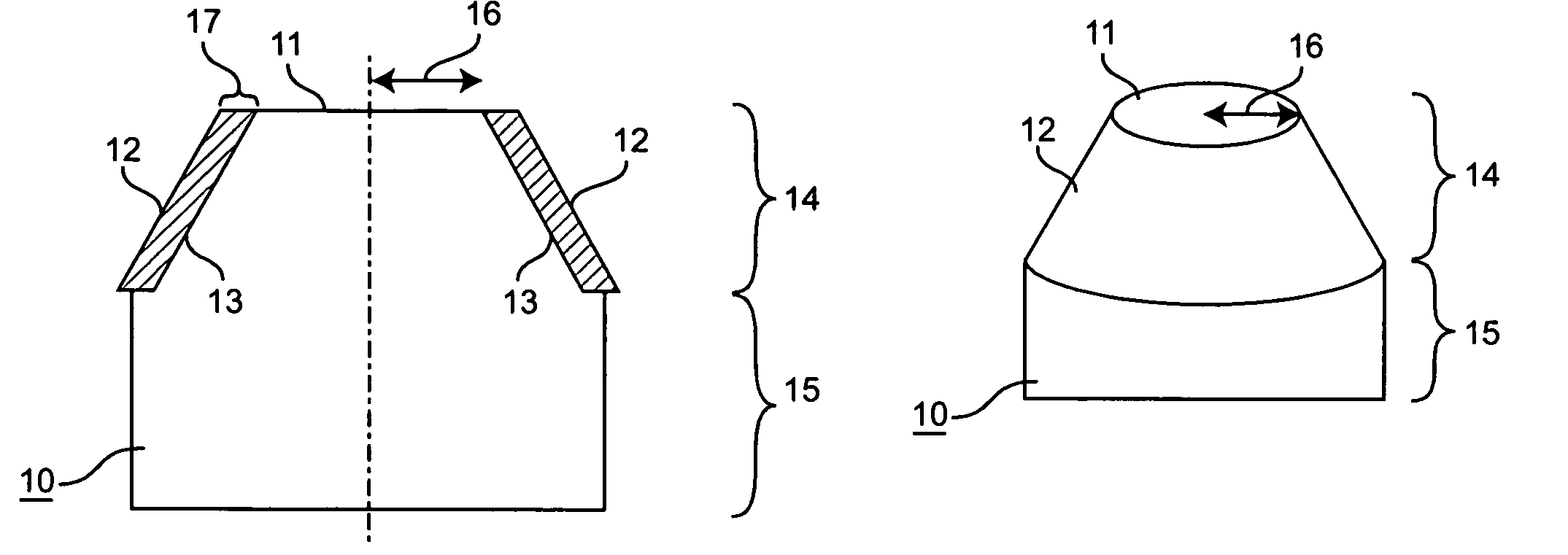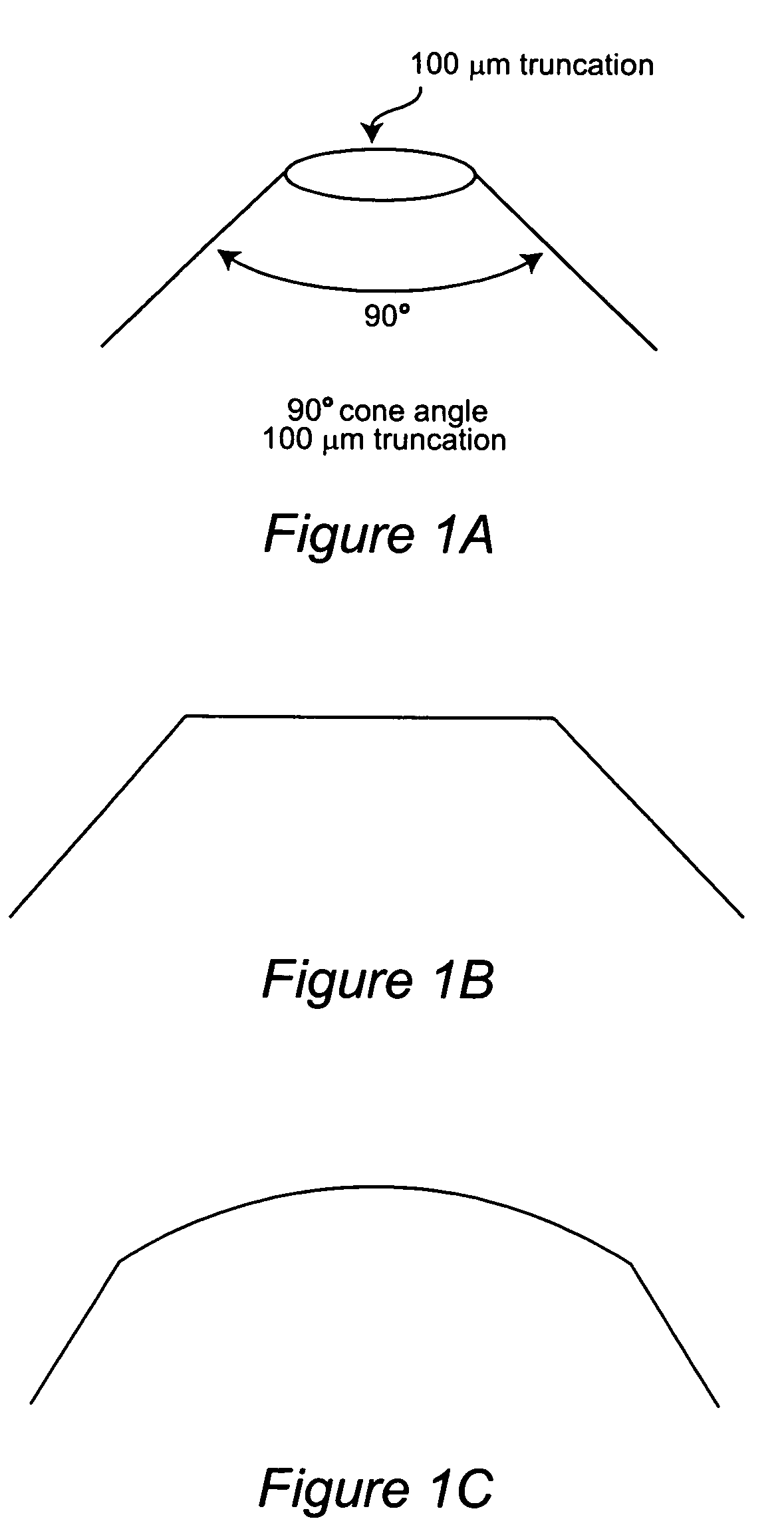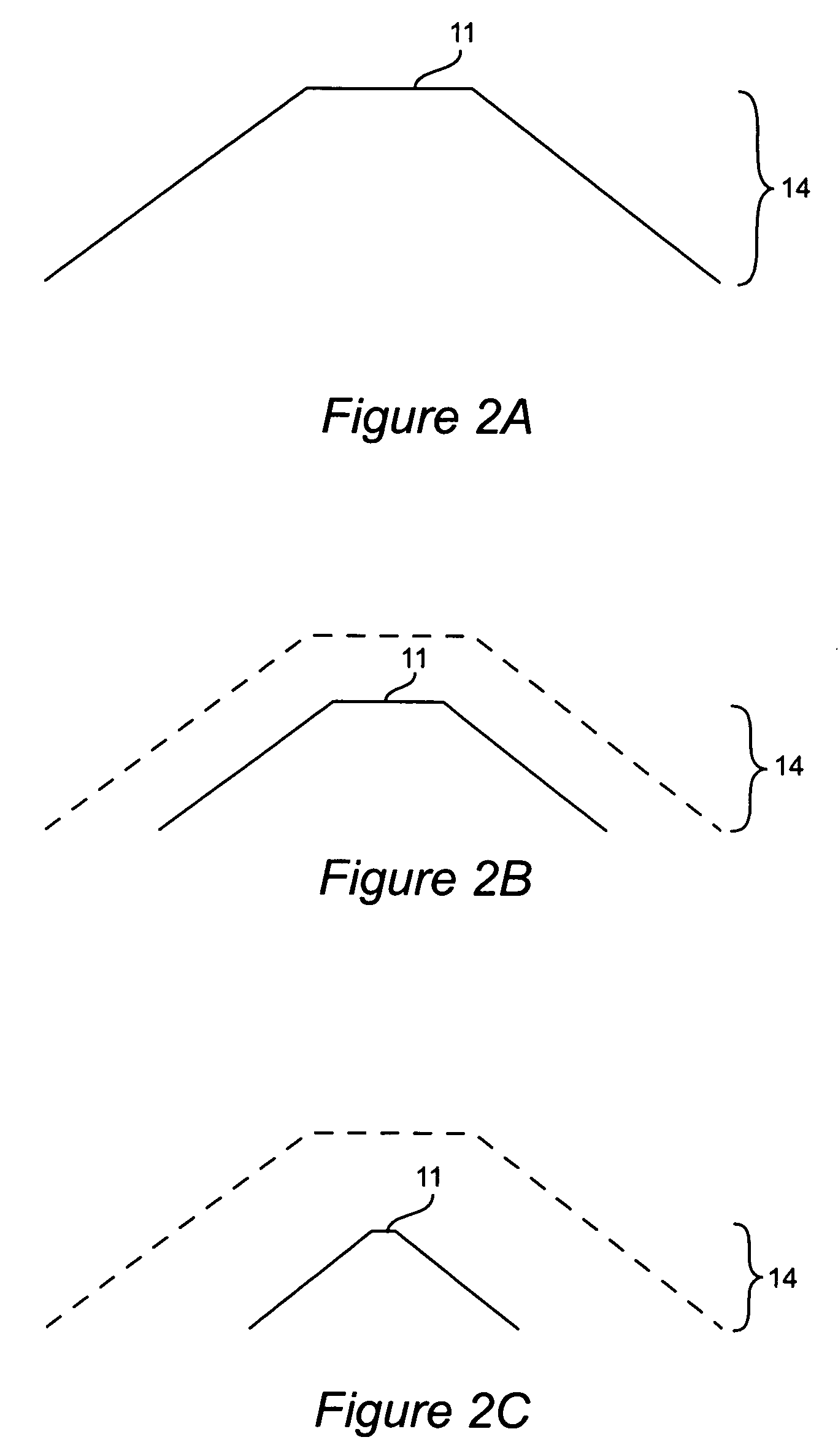HIgh brightness thermionic cathode
a thermionic cathode, high-brightness technology, applied in the manufacture of discharge tube main electrodes, electrode systems, discharge tube/lamps, etc., can solve the problems of limiting reducing reducing the useful life of the cathode. , to achieve the effect of enhancing the angular intensity and brightness of the electron source, suppressing or eliminating the emission o
- Summary
- Abstract
- Description
- Claims
- Application Information
AI Technical Summary
Benefits of technology
Problems solved by technology
Method used
Image
Examples
example 1
[0037] Comparison of electron beam angular intensity as a function of total emission current for conventional vs. K-LaB6 cathodes.
[0038] K-LaB6 cathodes with a coating of carbon applied to the cone surface of the cathode were prepared as follows: regular LaB6 emitters were placed into a chamber filled with carbon-rich gas (propane or butane) and heated up to a specified temperature for several minutes. After that, the emitters were removed from the chamber and the pyrolytic carbon coating formed on the surface was examined. Emitter tips were re-polished to remove carbon from the tips, thus exposing them (see FIG. 7). It was found, for this particular technique, that continuous, pinhole-free carbon coatings were formed with thicknesses ranging from 8 to 10 μm. K-cathodes with angles of 60 degrees and 90 degrees having tips with 50 and 100 μm diameters were fabricated in this manner.
[0039] A comparative study was undertaken in which total electron beam angular intensity as a functio...
example 2
Optimization of Cone Angle in K-LaB6 Cathodes
[0041] Further studies were undertaken in order to investigate the effect of varying the cone angle of K-Lab6 cathodes on the lifetime of the cathode. K-LaB6 cathodes having cone angles of 90 and 60 degrees, and tip diameters of 50 μm were utilized. The cone surfaces of the cathodes had a carbon coating of 8 μm which had been deposited in a gas-filled chamber as described above in Example 1.
[0042] The two cathodes were then compared with respect to performance (e.g. percentage emission current and percentage of brightness remaining) before and after extended operation. The results are given in Tables 1 and 2, which show the results obtained with the 90 and 60 degree cone angles, respectively. The columns labeled “Material Loss” show the thickness in μm of LaB6 evaporated from the tip. The columns labeled “% Emission Current” show the percentage of emission current retained. The columns labeled “% Brightness” show percentage of brightne...
PUM
 Login to View More
Login to View More Abstract
Description
Claims
Application Information
 Login to View More
Login to View More - R&D
- Intellectual Property
- Life Sciences
- Materials
- Tech Scout
- Unparalleled Data Quality
- Higher Quality Content
- 60% Fewer Hallucinations
Browse by: Latest US Patents, China's latest patents, Technical Efficacy Thesaurus, Application Domain, Technology Topic, Popular Technical Reports.
© 2025 PatSnap. All rights reserved.Legal|Privacy policy|Modern Slavery Act Transparency Statement|Sitemap|About US| Contact US: help@patsnap.com



